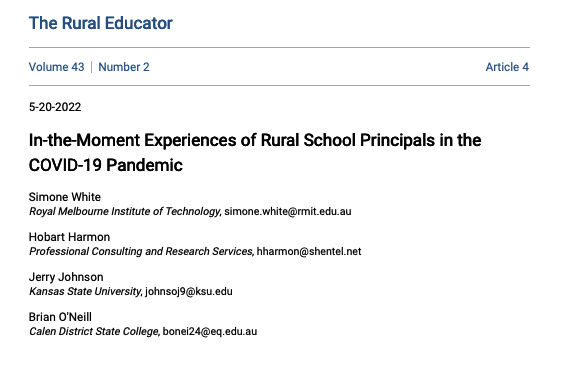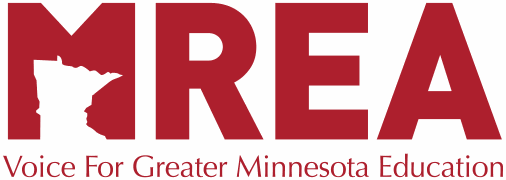ROBB SCHOOL MEMORIAL FUND INFORMATION
First State Bank of Uvalde has set up an account for donations to aid families in the wake of the tragedy in Uvalde.
If you would like to donate to the Robb School Memorial Fund, please call us at 830-278-6231 and ask for Roxanne Hernandez, Chance Neutze, or Cody Smith for any questions.
You can also drop off donations at any of our branch locations or mail them to: PO Box 1908, Uvalde TX 78802.
Make checks payable to Robb School Memorial Fund.
|
|
| Rural communities throughout the United States are vibrant places with great people, rich culture and heritage, and deep social ties. But many rural communities have been buffeted by the increasing prominence of automation and the knowledge-based economy, along with long-term challenges arising from lower educational levels, remoteness, and other factors. As a result, many communities are at a crossroads, wondering which direction will lead to prosperity for all. Investing in Rural Prosperity seeks to help people living in rural areas navigate the challenges and opportunities they face to achieve a prosperous future. |
| | Read More |
|
|
| The Rural Partners Network introduces a new way of doing business: a collaboration among federal agencies meant to improve access to government resources, staffing, and tools. Participating agencies designate key points of contact that focus specifically on rural strategies, improving visibility and attention to rural issues. The Rural Partners Network also puts federal staff on the ground to support designated, economically challenged communities. Known as “Community Liaisons,” these federal employees provide local leaders with the expertise to navigate federal programs. Community Liaisons help build relationships and identify additional resources to get the job done. As their work progresses, the lessons learned will impact future federal rural policy development and investment strategies. |
| | Read More |
|
|
|  |
The COVID-19 pandemic has exposed the many existing inequalities in education systems across the world. Not all children have easy access to educational online resources or digital technologies, a situation more amplified in rural contexts where access, connectivity, and affordability play a significant factor. This qualitative account reveals examples of how rural school leaders were able to find innovative ways early in the COVID-19 pandemic to address the remote learning needs of their students and families. This paper shares in-the-moment experiences of rural principals, and those who supported them, in quickly transitioning to address student needs when school buildings closed. Support actions of regional and state education agencies are also described. Principals’ schools are located in rural areas of Kansas, Pennsylvania, and Queensland, Australia. Principals’ attention to place and teacher capacity enabled students and families to access educational offerings and support in new ways. |
| | Read More |
|
|
| Call for Authors - Rurality across Race and Ethnicity (Edited Book) |
|
|
|
In partnership with Tyler Hallmark and Sonja Ardoin, I am thrilled to announce a Call for Authors for an upcoming edited book entitled, Rurality across Race and Ethnicity: Considerations for Advancing Higher Education Equity. The book will explore how colleges and universities can better support students from rural areas who identify as Asian American, Pacific Islander, Black and African American, Hispanic and Latinx, Indigenous, and/or multiracial, placing these students and their communities in conversation with national higher education discourse. As a part of the Call, we seek two types of submissions. - Book chapters, which would be approximately 15-20 pages in length (double-spaced) and would share original research, assessments, evaluations, literature reviews, and/or perspectives on rural Students/Communities of Color with a clear articulation of how the findings inform practitioners, policymakers, and scholars.
- Notes from the field would be approximately 3-5 pages in length (double-spaced) and would highlight ongoing/existing practices or programs that serve rural Students of Color.
Of course, at this time, submissions are only brief 300-500 word abstracts for either type. |
|
| We Can Do This Campaign: NREA is a Proud Partner |
|
|
|
| In this episode of the Rural Voice, Drs. Allen Pratt and Christopher Silver interview Dr. Lisa Costello regarding her experience and expertise on the COVID-19 Pandemic and vaccines. We discussed the impact of COVID on schools and on children. We discuss the variants and the science behind treatment and invention measures. We discuss the impact of vaccine availability, particularly for children under the age of 5 as well as the comparative approaches to addressing the Pandemic. We discuss the effects of the virus on local communities and how culture may be related to policy and practice addressing the Pandemic. We discuss how these approaches have been addressed and received within rural communities. |
| | Read More |
|
|
| Reading Rural: 2022 Summer Book Study |
| In keeping with NREA’s 2022 conference theme, the Equity, Diversity, and Inclusion Team (EDIT) will sponsor an informal book study this summer on Raising Rural: A Fair Chance for a Good Life, we will read Sarah Frey’s The Growing Season – How I Built a New Life – and Saved an American Farm. Using Frey’s narrative as a catalyst for discussions, we will explore creative and cooperative action around three strands: community, agency, and creativity from diverse perspectives. We will meet via Zoom in June, July, and August from 7:00 – 8:00 p.m. EST – on the second Monday of each month. Participants are not required to attend every session. Come as you are, whenever you can!
For more information please contact NREA via email.
|
|
|
|
| Minnesota Rural Education Association: |
|  |
Education Groups Call on Governor and Legislators to Convene Special Session to Approve an E-12 Supplemental Funding Bill
Districts statewide collectively face more than $822 million in special education funding shortfalls — the direct result of the state not funding important and mandated special education services: The state’s leading education associations are calling on the Governor and legislators to return to the Capitol to finish their work and pass an E-12 Education Supplemental Budget bill that addresses the massive special education funding shortfall. SAINT PAUL — On May 9th, parents, school board members, school administrators, and concerned citizens from across Minnesota held a press conference to urge legislators to use a portion of the state budget surplus to fulfill their obligation to fund important, and mandated, special education services. The Governor and legislative leaders responded by committing to a budget framework that included $1 billion for E-12 Education. Regrettably, lawmakers adjourned the 2022 session without fulfilling that commitment.
Today, the state’s leading education associations are calling on the Governor and legislators to return to the Capitol to finish their work and pass an E-12 Education Supplemental Budget bill that addresses the massive special education funding shortfall. School districts are forced to cover the shortfall – known as the special education cross-subsidy – by redirecting funds meant for all students.
Failure to approve supplemental funding will result in significant budget cuts and staff layoffs for school districts throughout the state. A recent statewide survey shows that 87 percent of districts that responded project a deficit in the 2022-23 school year. A February survey of the members of the Association of Metropolitan School Districts (AMSD) projected a combined $240 million in shortfalls for the 2022-23 school year. Rising inflation has only compounded the financial challenges.
Farmington Supt. Jason Berg said the failure to return for a special session to get their jobs done would be akin to if school district staff abandoned students in the final days of the school year. Educators across the state routinely devote additional hours of personal time every year to ensure their work is done and students are cared for.
“We have learners who need to complete work before the school year is done and we will ensure they do … even if it requires we provide them additional time after the school year ends,” Berg said. “I am asking the leaders of the Legislature to do the same thing. Do the hard, right work and complete what was started. That is what we would do with our learners!"
“Our district, and many others, will be forced into making reductions we wouldn’t need to make if legislators completed the work that was started this session before the 2022-23 school year,” Berg said.
"We have experienced firsthand the struggles our districts have had addressing the unfunded costs of providing necessary and required services to our students with disabilities," said Jamie Nord, Executive Director of the St. Croix River Education District and president of the Minnesota Administrators for Special Education. “Providing these important services is the right thing to do. The Legislature can, and should, do the right thing and provide the necessary funding.”
AMSD and Osseo School Board Chair Kelsey Dawson Walton also implored lawmakers to fulfill their obligation to fund mandated special education programs.
“We all know that Congress has never come close to providing the 40 percent of the costs of special education programming envisioned in the Individuals with Disabilities Education Act (IDEA),” Dawson Walton said. “Ultimately, however, it is the responsibility of the state to pay the costs not covered by the federal government.”
|
|
|
|
|  |
In 2018, three small rural elementary school districts in Kern County — Lost Hills Union Elementary, Semitropic Elementary, and Maple Elementary — came together as the West Kern Consortium serving 1,085 students in 650 square miles. At the time, as successful grant recipients of the highly competitive federal Full-Service Community Schools Grant Program, the West Kern Consortium built and deepened a whole-child, whole-community approach to student and community success, including early childhood education, expanded learning, math instruction, family and community partnerships, and social and health services. In this first-of-its-kind project, resources were pooled across districts to allow for shared project management and staffing. Each district brought its assets, expertise, relationships, and partnerships to bear to create a small but extraordinary rural example of collective impact. We established the Children’s Cabinet of West Kern, hired parent liaison/community school coordinators, created regional preschool programs at Lost Hills, and regional Expanded and Summer Learning Programs at Semitropic and Maple hired a shared math coach to increase the effectiveness of instruction, created an attendance campaign to target chronic absenteeism, and secured regional social workers and other mental health resources. |
| | Read More |
|
|
| NREA Latest Partnership: SuperEval & Schooley Mitchell |
|
|
|
We deliver four main currencies of value through our engagements including: - Money – we are vigilant in minimizing your costs – maximizing your profits
- Time – we spend our time staying on top of market offerings and options for you while you concentrate on your core functions
- Security – we make sure you get the right services from the right vendors at the right prices – now and throughout our entire term with you
- Knowledge – we deliver a complete network of Telecom experts to your doorstep which can be accessed at any time by
|
|
|